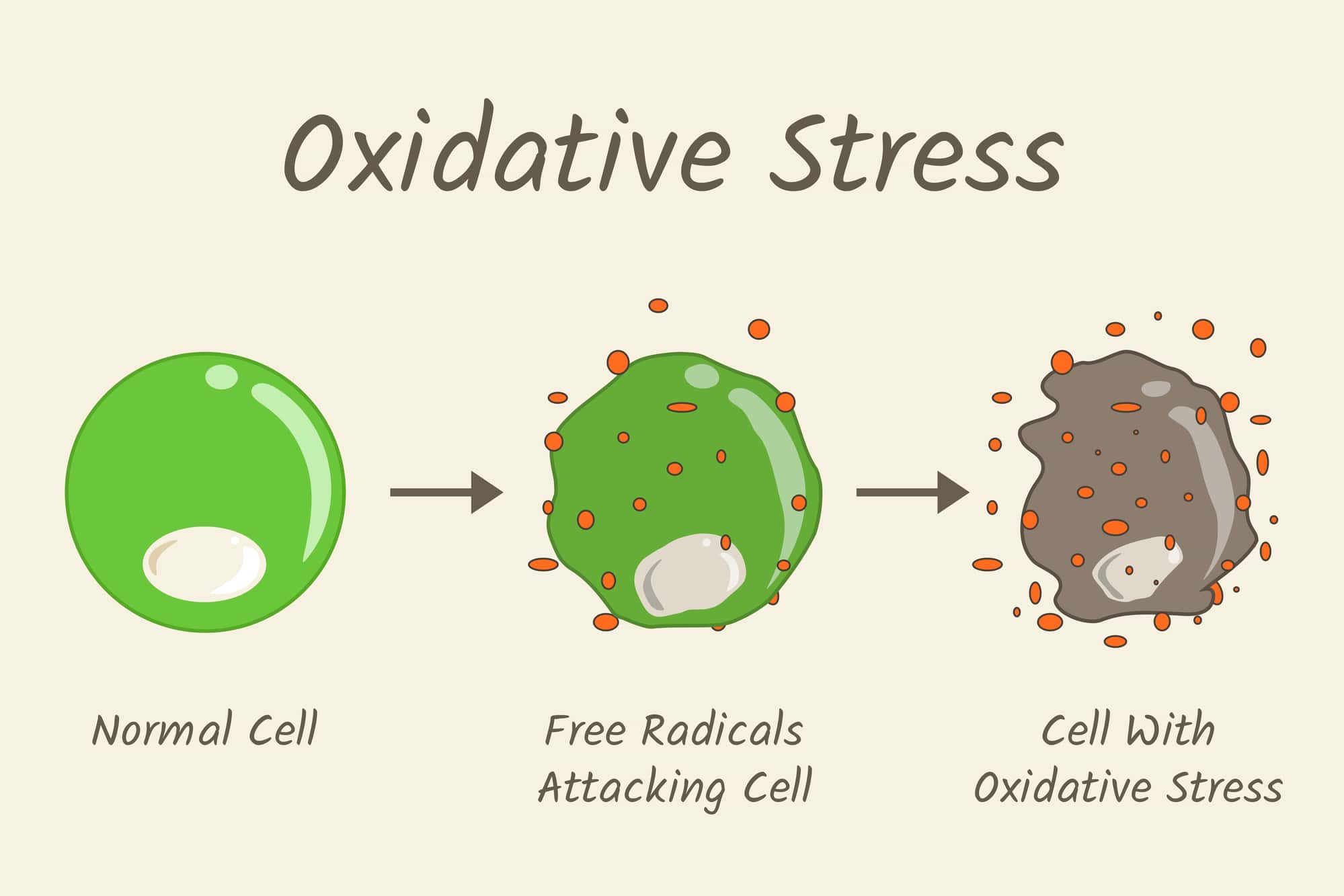“The doctor of the future will give no medicine, but will instruct his patients in care of the human frame, in diet, and in the cause and prevention of disease.”
~ Thomas Edison, American inventor and entrepreneur
Written by Janey Bibolet Ward
Edited by Nicki Steinberger, Ph.D.
Humans evolved from nomadic hunter-gatherer tribes to living in communities by learning to farm crops and raise livestock. Traditionally, people nourished their bodies by eating plants, tubers and legumes grown in mineral-rich soil, and butchering their grazing animals or catching fish. Water was sourced from naturally-oxygenated rivers and streams, or wells dug from springs.
Modern society has moved far away from living in harmony with nature. We now depend on water sourced through treatment plants contaminated by industrial chemicals such as fluoride, chlorine, chloramine, chlorine dioxide, and chromium. A recent government study by the U.S. Geological Survey (USGS) reports over half of the water supply is contaminated by per- and poly-fluoroalkyl substances (PFAS). These are known as “forever chemicals” that can be stored in your body, and last for hundreds of years in the environment before breaking down.
Your body is under continual assault from exposure to a slew of chemicals, heavy metals, radiation, antibiotics, growth hormones, pesticides, genetically-modified ingredients, food additives, vaccines, air and water pollution, pharmaceuticals and recreational drugs, including alcohol and tobacco. Mounting evidence links the widespread use of endocrine disrupting (EDC) chemicals used in a number of food and consumer products to negative immunomodulatory effects on the immune system and overall cellular health.
There is no standard indicator used to measure the nutrients or chemicals you ingest, or minerals you may be lacking due to dependence on the industrial food supply. The overuse of fertilizers which contain nitrogen, phosphorus, and potassium in cropland, and factory farm use of antibiotics, vaccines, and growth hormones has created a dire situation. Many people consume highly-processed food, and these nutrient-poor diets are linked to chronic disease, a leading cause of death and disability in the United States. What is supposed to sustain you is instead harmful to your health, known to be carcinogenic, and making you sick.
According to the Centers for Disease Control and Prevention (CDC), 6 out of 10 adults are suffering from chronic illnesses such as heart disease, stroke, type 2 diabetes, cancer, and kidney disease. Only 12% of Americans are considered to be metabolically healthy and metabolic dysfunction correlates directly to chronic illness. Diseases such as cancer, atherosclerosis, rheumatoid arthritis, metabolic syndrome (technically a “condition,” not a disease), chronic Hepatitis B, and neurodegenerative diseases such as Alzheimer’s and Parkinson’s are linked to oxidative stress.
Oxidative stress activates cellular degeneration when there is not enough antioxidant activity to prevent damage due to free radicals. In turn, this affects your body’s cells, tissues, proteins, and cellular organelles like mitochondria, and DNA. According to the National Institute of Health (NIH), four key elements comprise your body: oxygen, carbon, hydrogen and nitrogen. They are essential to optimal functioning at the cellular level to control the processes that keep you healthy and alive.
Many people, perhaps yourself included, look to supplements to ensure nutrient uptake and support for the immune system. Hydrogen (H) is one of the earth’s most abundant elements and can be used as a first line of defense to stave off disease, and provide an affordable option to support overall health. Hydrogen pairs with two Oxygen (O) molecules to create water (H2O) which is essential for sustaining life on Earth.
Interestingly, hydrogen was thought to be an inert gas and not known to have any therapeutic medical value. This changed when researchers discovered it had a unique function at the biochemical level. It was found to act within metabolic pathways to reduce inflammation, and selectively target the most reactive free radicals.

The Studies Speak for Themselves
Acute oxidative stress is one of the leading causes of disease. It can damage mitochondria, disrupt DNA expression, and eventually result in programmed cellular death, or apoptosis. A groundbreaking May 2007 study published in the medical journal Nature, “Hydrogen acts as a therapeutic antioxidant by selectively reducing cytotoxic oxygen radicals,” demonstrated that hydrogen is a potent agent and selectively scavenges the harmful cytotoxic hydroxyl radical. It does this without disrupting other reactive oxygen species (ROS) that have positive physiological functions, and protects cells from further damage.
In 2016, “Molecular hydrogen: a therapeutic antioxidant and beyond,” found that early work with zebrafish and rats led to successful studies using human subjects. Hydrogen was shown as a feasible medical therapeutic agent worthy of further study and clinical trials to treat disease.
“Emerging evidence has consistently demonstrated that molecular hydrogen is a promising therapeutic option for a variety of diseases and the underlying comprehensive mechanisms is beyond pure hydroxyl radicals scavenging. The non-toxicity at high concentrations and rapid cellular diffusion features of molecular hydrogen ensure the feasibility and readiness of its clinical translation to human patients.”
In 2017, “Molecular hydrogen: a preventive and therapeutic medical gas for various diseases,” provided a systematic review of current studies. Its authors urged medical science to consider hydrogen’s use to address major global health issues, including preventative treatment for chronic illness.
A subsequent 2020 study in Nature, “Hydrogen-rich water reduces inflammatory responses and prevents apoptosis of peripheral blood cells in healthy adults: a randomized, double-blind, controlled trial,” explored the effects of hydrogen water consumption, and reported that the subjects using it in age groups over 30 had significant serum biological antioxidant potential (BAP) whereas in younger groups, it was not significant.
“Four-week consumption of H2-water induced a substantial increase in the antioxidant capacity and a decrease in oxidative stress of DNAs, although there was no significance found in the comparison of an intervention (H2-water) and the placebo (plain water) group.”
The free radical theory posits that aging is a result of the accumulation of oxidative stress and cellular degeneration over your lifespan that will lead to death eventually. Enhanced metabolic rate and antioxidant activity is key to reducing oxidative stress in order to protect cellular health and increase longevity. Hydrogen water was shown to disrupt the transcripts that signaled the triggering of inflammation. The resulting cytokine response was reduced significantly, and effectively halted the immune system’s response to the triggers, preventing disease progression.
How It Works
The hydrogen molecule rapidly diffuses into your cells and accesses the mitochondria and cell nucleus through the cell membrane. It does this without disrupting healthy functioning cells, while effectively slowing the disease process. In fact, hydrogen penetrates deeply into the nucleus to work at the genetic level. It binds to the part of the gene that codes for the body’s natural antioxidant pathway defense system. It attaches to destructive free radicals, and even crosses the blood brain barrier. Ingesting molecular hydrogen can keep oxidative stress low by neutralizing free radicals, and boosting the internal antioxidant system in your body.
One of the easiest methods for using hydrogen is by ingesting it orally—either by purchasing water with hydrogen gas (H2) added to it, or by dissolving a tablet that releases the hydrogen gas into clean purified water, known as H2-rich water (HRW). This formulation has been promoted for its anti-inflammatory and antioxidant properties, and is said to have many beneficial qualities. Examples include: increasing metabolic energy, enhancing athletic performance, improving muscle recovery from exercise exertion, adding recovery during radiation treatment, slowing the cellular degeneration that leads to the aging process, and preventing disease.
In 2020, hydrogen water was shown to be a potential adjunct therapy to treat the then novel coronavirus acute respiratory syndrome, the excessive inflammatory response, and the resulting cytokine storm. It demonstrated that it could help to protect the lungs and extrapulmonary organs from harm by regulating the anti-inflammatory and antioxidant activity, mitochondrial energy metabolism, the immune system, and cell death.
Additionally, it acts to help expel sputum, support the lungs from injury, and reduce the destructive cytokine storm that leads to severe injury or death. The inhalation of hydrogen as a gas versus ingesting in water was demonstrated to have a life saving therapeutic effect.
Taken from “Molecular Hydrogen: A Promising Adjunctive Strategy for the Treatment of the COVID-19”:
“According to the above studies, the use of hydrogen gas can reduce the destructive cytokine storm and lung injury caused by SARS-CoV-2 in the early stage of the COVID-19, stimulate sputum drainage, and ultimately reduce the incidence of severe disease.”
Hydrogen is nontoxic and the only byproduct is water. The only risk or safety concern is hyponatremia—overconsuming water to the point where your kidneys are overwhelmed. In this state, the body loses too much sodium which causes an electrolyte imbalance. The U.S. Food and Drug Administration (FDA) acknowledged hydrogen (H2) gas as a food additive when used in drinking water or beverages, and declared it to be generally recognized as safe (GRAS).

Hydrogen therapy is a promising therapeutic agent for pulmonary diseases, and should be considered for treating acute lung injury, chronic obstructive pulmonary disease, asthma, lung cancer, pulmonary arterial hypertension, and pulmonary fibrosis.
To support your overall health and minimize oxidative stress, your best option is to surround yourself with positive-thinking people, make stress-reduction a part of everyday living, and eat nutrient dense food. Include clean water, organic, pastured, and grass-fed/finished whole food sources to your diet. High-quality “real” food, as opposed to processed and ultra-processed foods, helps break down essential nutrients that will fuel your body’s metabolic processes to produce vital energy.
It is essential to support your body with regular exercise, restful sleep, and a mind-taming practice such as yoga and/or meditation. You might also consider a round of cold water therapy—shown to produce anti-oxidative protection. Adding hydrogen water to your wellness routine may be especially beneficial during times of duress, stress from illness, and intense athletic training. Additionally, consider hydrogen supplementation while undergoing chemotherapy treatment, or other protocols that cause severe oxidative stress.
~
Published on February 01, 2024.
To contact A Voice For Choice Advocacy, please email media@avoiceforchoice.org.
If you would like to support the research and health education of AVFC editorial, please consider making a donation today. Thank you.

